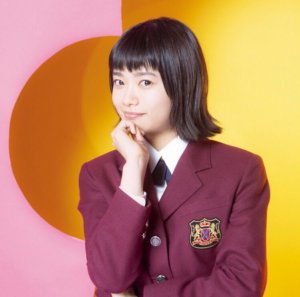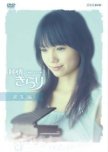This review may contain spoilers
No Life Is Meaningless
At a glance, "Junjo Kirari" might seem like just another story about following your dreams. The story, however, grows along with our heroine Sakurako (played by the wonderful Aoi Miyazaki) as she discovers the meaning of life itself. For this reason, the drama starts off very light and fluffy which represents childhood and adolescence. As the Second World War looms, it quickly becomes about persevering through hardships. Then the post-war section is where Sakurako finds true happiness surrounded by her love ones.
This is only my second asadora. The first being "Hanako to Anne." There are a lot of similarities between the two as both follow a heroine from a poor family living in a small town who goes to Tokyo to follow her dreams. And both also cover the war. I've knocked out a half a point from "Junjo Kirari" 's score because of some story elements I didn't really like. So let's cover those first.
1) I disliked Sakurako's engagement with Saito Sensei. I'm assuming that there's not much of an age difference, but still a grown man being interested in a seventeen-year-old will always give me the ick. I'd also like to point out that they have zero chemistry together. Thankfully, this storyline doesn't go on for long.
2) Fueko's character easily becomes one of the most inconsistent characters of the series, but I have mixed feelings about it. It might be natural for a woman to change after marriage and childbirth. I'm not really sure.
3) The war weeks were already going on too long, but they just had to have Sakurako fall in love with Togo (Fueko's husband). Nothing happens of course, but I still hate it.
Now these complaints are out of the way. "Junjo Kirari" has a lot of good points. The heroine is a lovely and fun person to follow as she follows her music dreams and sacrifices for her family. Sakurako is stubborn and strong-willed, but not in annoying way. There are some great supporting characters like Tatsuhiko (Sakurako's love interest), Togo (a wandering artist), Kane (Tatsuhiko's mother), Momoko (Sakurako's sister), and others. I will say I didn't feel as attached to the side characters in this series, but I think that's just because the focus is given more to Sakurako. The music is also nice in a calming sort of way.
My final comment is that though this drama has a tragic ending, I will not lower the score for that. Sometimes tragedy is called for at the end of a drama. That does not mean our time was wasted, just that sad things happen some time. I really liked this drama and had a nice time watching it.
This is only my second asadora. The first being "Hanako to Anne." There are a lot of similarities between the two as both follow a heroine from a poor family living in a small town who goes to Tokyo to follow her dreams. And both also cover the war. I've knocked out a half a point from "Junjo Kirari" 's score because of some story elements I didn't really like. So let's cover those first.
1) I disliked Sakurako's engagement with Saito Sensei. I'm assuming that there's not much of an age difference, but still a grown man being interested in a seventeen-year-old will always give me the ick. I'd also like to point out that they have zero chemistry together. Thankfully, this storyline doesn't go on for long.
2) Fueko's character easily becomes one of the most inconsistent characters of the series, but I have mixed feelings about it. It might be natural for a woman to change after marriage and childbirth. I'm not really sure.
3) The war weeks were already going on too long, but they just had to have Sakurako fall in love with Togo (Fueko's husband). Nothing happens of course, but I still hate it.
Now these complaints are out of the way. "Junjo Kirari" has a lot of good points. The heroine is a lovely and fun person to follow as she follows her music dreams and sacrifices for her family. Sakurako is stubborn and strong-willed, but not in annoying way. There are some great supporting characters like Tatsuhiko (Sakurako's love interest), Togo (a wandering artist), Kane (Tatsuhiko's mother), Momoko (Sakurako's sister), and others. I will say I didn't feel as attached to the side characters in this series, but I think that's just because the focus is given more to Sakurako. The music is also nice in a calming sort of way.
My final comment is that though this drama has a tragic ending, I will not lower the score for that. Sometimes tragedy is called for at the end of a drama. That does not mean our time was wasted, just that sad things happen some time. I really liked this drama and had a nice time watching it.
Was this review helpful to you?

























